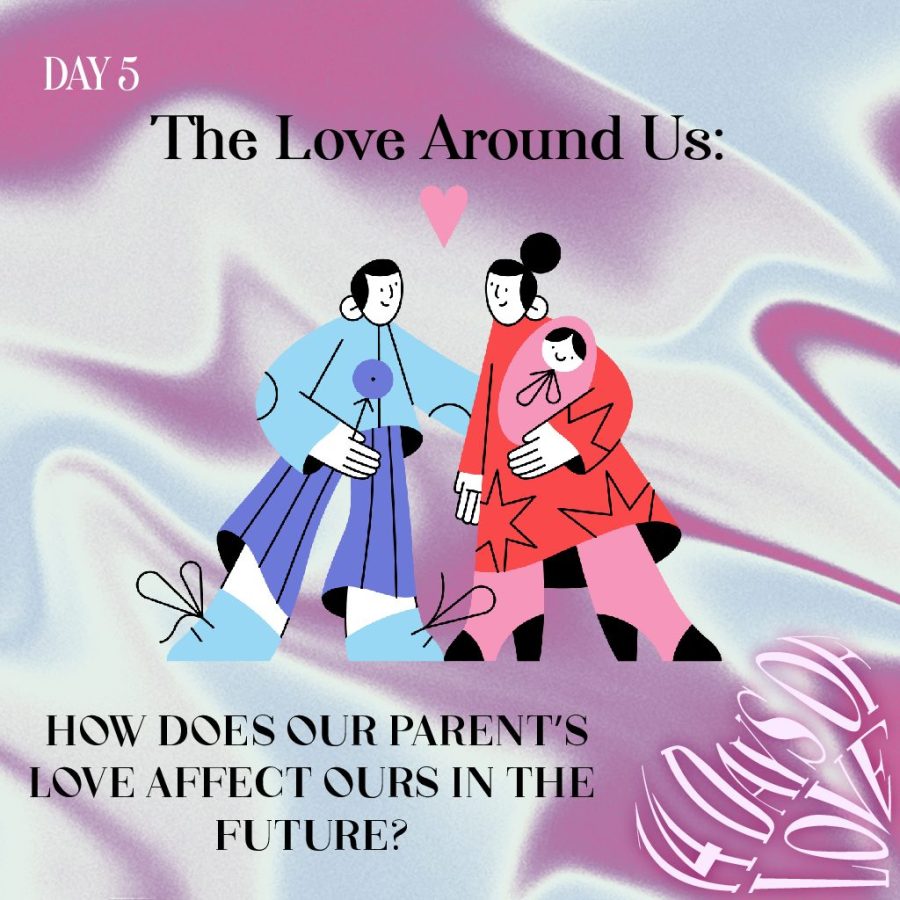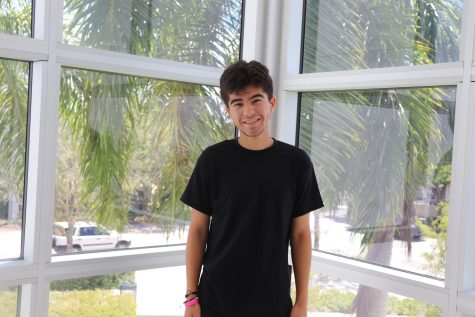14 Days of Love Day 5: The Love Around Us: How Does Our Parent’s Love Affect Ours in the Future?
February 5, 2023
Throughout the entirety of our lives, our parents act as a staple of our economic, social and emotional stability. This common situation allows for the question: is there a link between our own “abilities” emotionally with a romantic partner and the attributes our parents exhibit throughout our lives?
This question may seem daunting, but studies have found that children with an emotionally expressive and open upbringing, later on, have an easier time adapting to an emotionally healthy adulthood.
I am blessed to have the parents I do, as they have shown what I believe to be an extremely healthy relationship. Their resilience through rough times, times of change and times that my sister and I did not even understand were tough for them, allowing us to learn how to carry on a healthy relationship. One would wish an emotionally healthy relationship is the norm, but sadly, it is not.
Too often, parents are disconnected or unavailable for their children, and whether it be for personal or other reasons, this complex relationship may leave families’ emotional health in despair.
Psychology Today uses “flourishing” as a state of holistic well-being characterized by four categories: happiness and life satisfaction, physical and mental health, meaning and purpose and meaningful social relationships. Through this definition, it is found that people thrive in all categories at a more satisfying level later in life when they experience a warm childhood.
But why does parental influence lead to such effects on children? The “Encyclopedia on Early Childhood Development” found that when parents become more aware of the reasons they and their children react in certain ways to situations and information, they become more efficient in their style of parenting. On the contrary, a study done by James Bugental and colleagues demonstrates that mothers feeling as though their children have power over them become hostile and aggressive, which then reflects negatively on the behavior of their children.
Similarly, a father’s influence on well-being cannot be understated. A study done at Mid-Western University shows that the presence of fathers in the lives of their daughters affects their perception of love and relationships in a positive stance. With their presence, children are able to learn about the importance of support, loyalty and trust within relationships.
Parents, as shown, act as an example of emotional intelligence and response to problems that their children may face.
It is possible, however, that a disconnect between generations in a lack of affection or an increase of abuse has manifested in adults due to their childhoods. According to the National Library of Medicine, over 36% of adults report emotional abuse during their childhoods.
How may Generation Z conquer the disconnect between generations of abuse to then thrive in their adult lives?
Gen-Z has the unique advantage of an unforeseen climate of social and emotional change in the years within our generation. According to the American Psychological Association, Gen-Z is more likely to report their mental health as compared to millennials or Generation X.
It is possible that this emotional awareness can potentially lead to more emotionally connected parenting and parenting focused on the emotional health of the home in its entirety in the future.
Although the generations before felt different sources of stress and worry, Gen-Z’s readiness in facing the foes of the day, may lead to a brighter future for generations to come.








